 1) Who, What and Where: (Your name and your formal title at Commodore Homes and where your company is based).
1) Who, What and Where: (Your name and your formal title at Commodore Homes and where your company is based).
Barry S. Shein, President of The Commodore Corporation, Goshen, Indiana 46526.
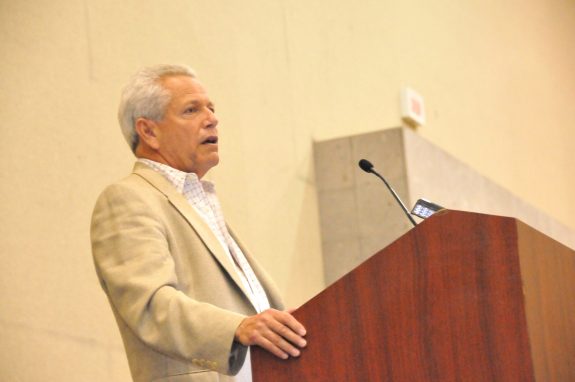
2) Background: (Educational/Professional snapshot before entering the factory-built housing arena).
Certified Public Accountant – now, inactive. Prior to The Commodore Corporation activity, I was involved in real estate development and management with the Trammell Crow Company and Samuel Zell organizations.
3) When and How: (When and how you began with in manufactured housing).
With the Zell organization assembled and managed manufactured home communities and then led the bankruptcy reorganization of TCC resulting in it becoming a subsidiary of a Zell controlled company. I acquired operating control in 1990 and 100% of the shares in 1992.
4) What are your personal interests or hobbies? How do you like to spend non-work time?
I enjoy tennis and go to the gym regularly. My wife and I enjoy Symphony and are involved with our Regional Symphony. We are active in our Temple and several charities.
5) As a privately held business, let’s start with some history for Commodore Homes . You’re firm has been around for over half a century. A snapshot of your history, and what you think explains your amazing longevity in this industry would be of interest to our readers.
The Commodore Corporation (TCC) has a storied past including two bankruptcies. My involvement commenced in 1985 when the company was converted from a publicly owned company as explained above.
6) The factory-built housing industry has been changing for some years now. Around 2012, Commodore’s mix of HUD Code homes vs. modular homes was reportedly about 50%-50%. What is that mix like today? What do you see as the market drivers behind those trends?
Our mix of product remains about 50/50. We choose not to participate in the low end. HUD Code business is in the Midwest and Southeast, which limits our HUD sales in these markets. We are a full line HUD Code manufactured home and modular manufacturer in the Northeast.
7) Even after the last great downturn of 2008, Commodore not only weathered the storm, but you’ve acquired additional assets in factory home building. Please give us a sense of those developments, and what you see as its significance to the manufactured and modular home professional.
We are excited about the future opportunities of our new R-Anell Division. We have successfully consolidated the Danville, Virginia, Commodore Division into R-Anell whose outstanding facility allows us to produce what was not possible in Danville. The last 2 years we significantly expanded 2 other facilities to gain volume and improve quality.
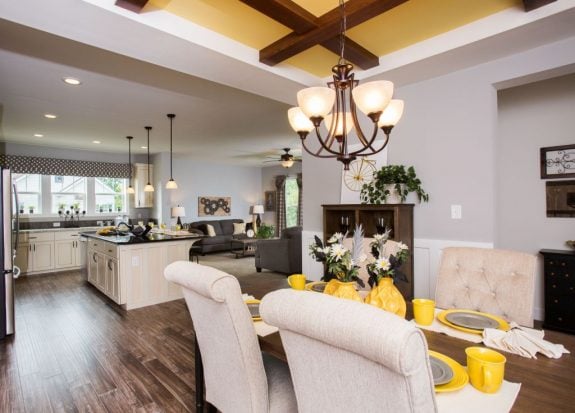
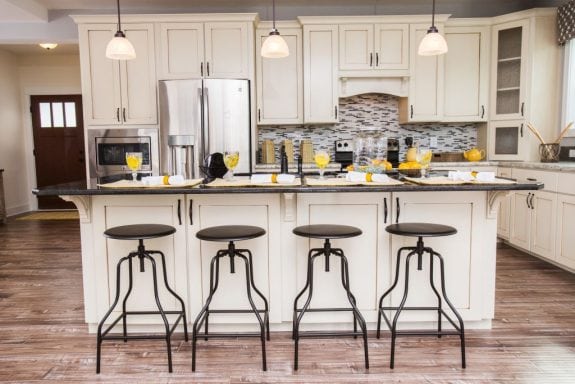
The financial crisis of 2008 and 2009 drastically reduced the number of Builders, Dealers and locations. This has allowed the remaining strong Dealer base to successfully grow their business. It also made many site Builders consider modular product. We believe this trend will continue to grow opportunities for modular manufacturers.
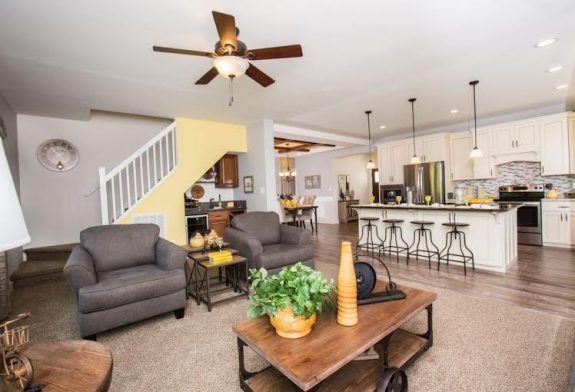
8) Commodore is heavily involved in trade shows such as Louisville, and you often bring pretty amazing product to those events. Please share some insights into your philosophy of trade shows. Also, for those who haven’t been to a trade show in years, explain why they are a benefit to communities, retailers and builder/developers.
Commodore is a big believer in trade shows. We use it to introduce new concepts, materials, options and floor plans. This year we elected to bring to Louisville one very residential (site built) floor plan and elevation recognizing it would appeal to only select Dealers and Builders. Our goal was to have our team focus attendees on the new materials, options and flexibility of our company. In the past, depending on the trade show location, we would display a wide range of homes and price points.
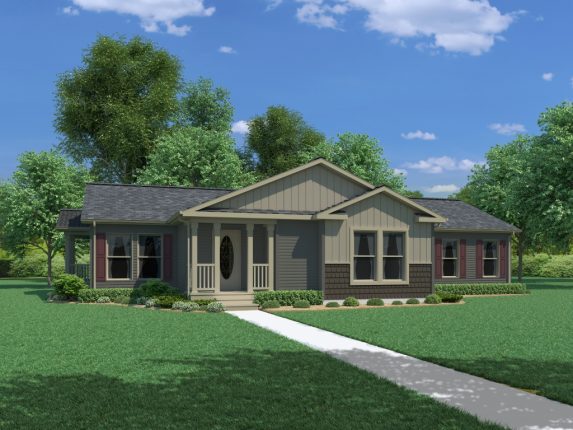
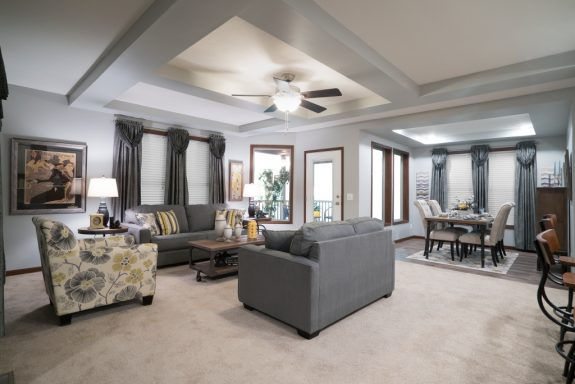
9) What do you consider the largest challenges facing the industry in general today? Where do you see MH’s largest opportunities?
Our biggest challenge is keeping up with increasing demands of regulators (HUD Code & State Modular). The HUD code product suffers from lack of access to chattel financing and the secondary market.
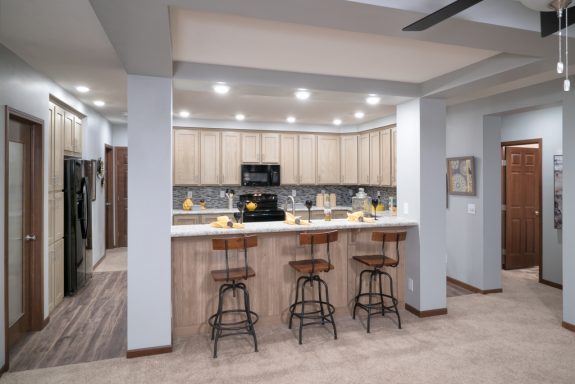
10) You have a keen eye on the future of your firm, and have been developing Bob Bender and a team with that future in mind. Please give us some insights into team building and feel free to share any thoughts you may have about particular members of Commodore’s leadership.
Our company has successfully transitioned our corporate management and professional staff to people in their 50’s or younger. Our last senior manager with 50 years of service announced he will retire in August. We have ample time to find and train his replacement.
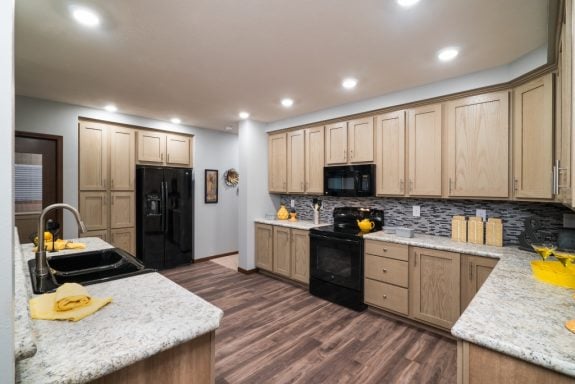
11) Word has it that Commodore has been a member of two national MH industry trade associations. Please tell our readers what you see as the strengths of each national MH organization. Also, for those who are sitting on the sidelines and aren’t involved in associations, what do you see as their importance and value?
Commodore belongs to MHARR and MHI primarily as a duty to support their efforts to represent our industry in Congress and with regulators. MHI is all inclusive with all segments involved with manufactured housing. MHARR represents only manufacturers and is made up of smaller independent companies.
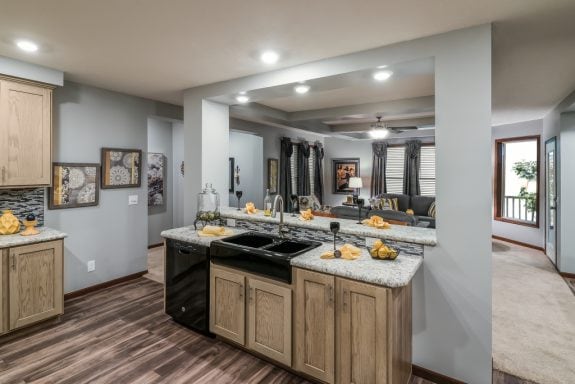
12) In manufactured housing, there is often a push by a number of retailers and communities, for the cheapest house at the cheapest price. But there are also retailers and communities who offer both entry level ‘shade and shelter’ homes, which your operation doesn’t focus on – and the ‘residential style’ of homes that you are famous for today. While entry level is important, many in our industry don’t see the fact that the largest opportunity is to get more of that ‘site built business. For those stuck in ‘entry level’ thinking, tell us your view of why it makes sense for MH pros to go after mid-to-upscale retail customers.
Your assumption in this question is in error. In the Northeast, we produce everything from less expensive entry level homes to complex 2-story, cape cods and chalets and park models. We are focused on value to the end customer and choose not to produce homes below our minimum specifications and standards. In the Southeast and Midwest, we have focused on modular product and would need additional facilities and personnel to expand our product offering.
13) Some believe that manufactured homes can slowly recover to 100,000 plus shipments a year. Meanwhile, others like giant MH Community REIT, UMH’s Sam Landy think that we could be doing some 300,000 new HUD Code homes a year. Auto’s just finished a record year, with about 17.5 million new units shipped, many of which sell for a similar price as a manufactured home. The RVIA reports 369,000 shipments, about 5 times what MH shipped, and they cost more per square foot than manufactured housing does. Is there wisdom in seeking to grow the industry’s base from around the current 70,000 new MHs and even fewer MODs back towards a sustainable number that more mirrors other larger ticket industries or mainstream housing?
The key to more units lies in more distribution. I believe the economics of manufactured home community development and the cost of opening and sustaining a retail store do not favor increased shipments. I also believe the industry is challenged with not having sufficient people available at all levels to increase units.
14) While many are talking about Millenials and the potential of Gen Y with some 71 million adults, over 60% of the nation’s wealth is in the hands of those over 60. Doesn’t that latter group tend to be more responsive to manufactured homes as a retirement option? And do you think that image and education can help industry pros to broaden our appeal to all age groups?
Commodore attempts to design and manufacture homes for all age groups and economic brackets depending on the geographic market we serve. The industry has made great strides in getting the attention of Builders through articles in Builder Magazine and Professional Builder. We can surely gain by expanding our reach to all age and economic groups.
15) Closing thoughts, sir?
I came into the manufactured housing industry 30 years ago from the real estate world and am as excited today as I was then. I am thrilled that my son-in-law feels that same excitement and intends on carrying on and growing our company. I look forward to the day that he becomes CEO and leads our great management forward.










